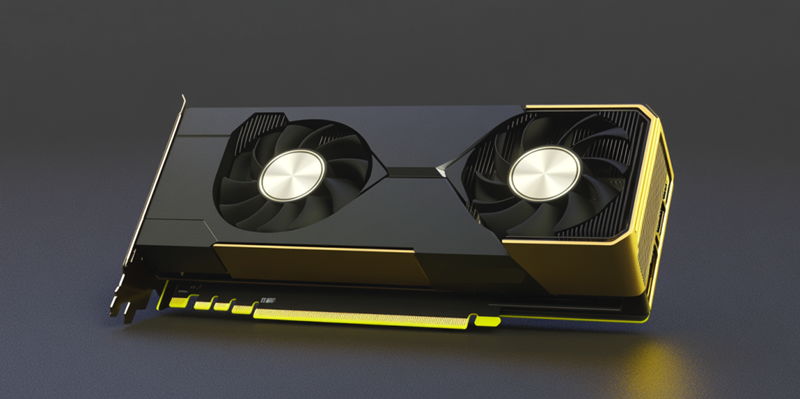In an unanticipated twist, Nvidia is set to retain the RTX 4050 GPU for laptops, even as it gears up for the launch of its upcoming RTX 5000 series mobile graphics cards. Historically, Nvidia has followed a pattern of phasing out older generation GPUs in favor of the latest models, making this move a significant shift in strategy. According to information from a leaked source on Weibo, Nvidia plans to discontinue all other Lovelace notebook GPUs, ranging from the RTX 4060 to the RTX 4090, while continuing the production of the RTX 4050. This decision positions the RTX 4050 as the entry-level option in Nvidia’s mobile GPU lineup, specifically below the anticipated RTX 5050.
The Strategy Behind Retaining RTX 4050
Retaining the RTX 4050 amidst the RTX 5000 series launch appears to be a calculated decision aimed at appealing to budget-conscious gamers. This approach offers an affordable option for those who may not require the high-end performance of newer models. The move could result in the RTX 4050 being marketed at its current price or potentially at a reduced rate, further enhancing its appeal. The juxtaposition of maintaining an older, less expensive GPU while introducing a new, potentially higher-priced series, suggests Nvidia’s intent to cater to diverse price points within the gaming community.
Despite its relatively lower market share compared to the RTX 4060, the RTX 4050 has garnered a significant user base among mobile gamers. Data from Steam’s hardware survey reveals that while the RTX 4060 commands 4.3% of the market, the RTX 4050 holds a 1.1% share. This demonstrates an established demand for a budget-friendly GPU option, validating Nvidia’s decision to keep the RTX 4050 available. Such a strategy mirrors Nvidia’s previous approach when it maintained the RTX 2050 even after introducing the RTX 3000 series, reflecting a trend of providing accessible options amidst rising GPU prices.
Potential Price Implications and Market Dynamics
One salient point of interest revolves around the potential price implications for consumers. If Nvidia continues offering the RTX 4050 at a reduced price, it could lead to more competitive pricing for budget gaming laptops. However, a contrasting scenario might unfold if the RTX 5050 launches at a higher price point than the initial cost of the RTX 4050. This would signify Nvidia’s inclination towards maximizing revenue while still offering an entry-level option for gamers. The translation nuances from the original leak underscore the ambiguity regarding the RTX 5050’s pricing strategy, leaving room for speculation.
Notably, Nvidia’s decision could influence the broader market dynamics, especially the positioning of budget gaming options. By retaining the RTX 4050, Nvidia might encourage laptop manufacturers to continue producing models equipped with this GPU, likely influenced by its balance of cost and performance. Gamers seeking affordable options could find an appealing choice in the RTX 4050-equipped laptops, especially if promotional pricing around events like Black Friday makes these options even more attractive.
Impact on Consumers and Market Trends
In an unexpected move, Nvidia is set to keep the RTX 4050 GPU for laptops in circulation while preparing to launch its new RTX 5000 series mobile graphics cards. This decision marks a departure from Nvidia’s usual practice of discontinuing older generation GPUs when introducing new ones, highlighting a significant shift in the company’s strategy. A leaked source on Weibo reveals that Nvidia will stop producing all other Lovelace notebook GPUs, from the RTX 4060 up to the RTX 4090, but will continue with the RTX 4050. This move positions the RTX 4050 as the entry-level GPU in Nvidia’s mobile lineup, making it the most affordable option below the upcoming RTX 5050. Keeping the RTX 4050 in production could cater to budget-conscious consumers and maintain a diverse range of products. This strategic adjustment may reflect Nvidia’s response to market demands and competitive pressures, ensuring they cover all segments of mobile GPU users from entry-level to high-end.

